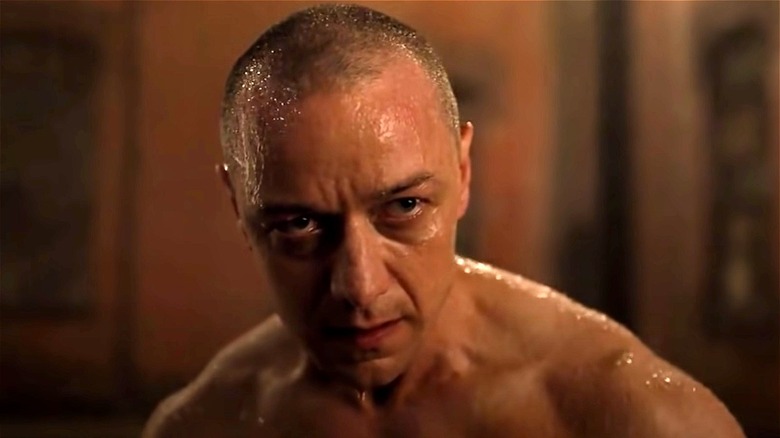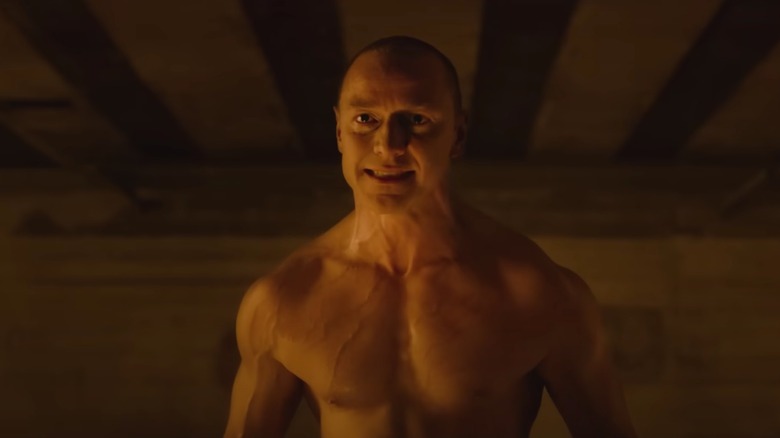How James McAvoy Used Glass To Rehab A Life-Threatening Illness
During James McAvoy's early career, the Glaswegian actor was known for boyish and floppy-haired roles in "Shameless," "Atonement" and "The Last King of Scotland." This image is hard to square with the buff McAvoy seen later in films like "X-Men" and "Glass." As he told Men's Journal, he learned to lean into "old-fashioned superhero codswallop."
But that affinity came only after McAvoy's brush with death. In 2017, McAvoy faced a complication from his sarcoidosis — a condition that causes swollen patches of tissue in the body — operation. According to GQ, a "botched biopsy" led to an "infected surgery scar" and an extended hospital stay. This infection caused his lungs to collapse. "It nearly killed me," the actor recalled. "It was very scary. A terrifying f******* thing to go through." Three weeks after his "three-week stay" in hospitalization, McAvoy started preparing for M. Night Shyamalan's twist-filled "Glass," the third installment of the "Unbreakable" series. Surprisingly, McAvoy's physical preparation aided in his recovery process, too.
McAvoy's illness gave him a new lease on life
To reprise the role of Beast — a part in which McAvoy would be largely shirtless — the actor underwent an intense workout regimen with trainer Magnus Lygdback. McAvoy hit the gym hard, leaning into strength-training workouts that suited his cardio-averse body. "I couldn't run to the end of the road and back for like, four or five months. But weirdly, I could lift f****** 160 kilos," McAvoy recalled to GQ. "[Lygdback] was also kind of rehabilitating me as well. It was kind of perfect timing."
In addition to a new buff physique, McAvoy's rehabilitation period gave him a chance to rethink his priorities — especially after spending nearly thirty years in the acting business. He told Men's Journal, "As somebody who's always thought I'd be happy making it to 70 years of age and then die, I think: 'I've got 31 years left.'" Now the star prefers to accept more interesting roles and fewer sleep-depriving call times. "It's important to do what I want to do, instead of what I should do," McAvoy said.

